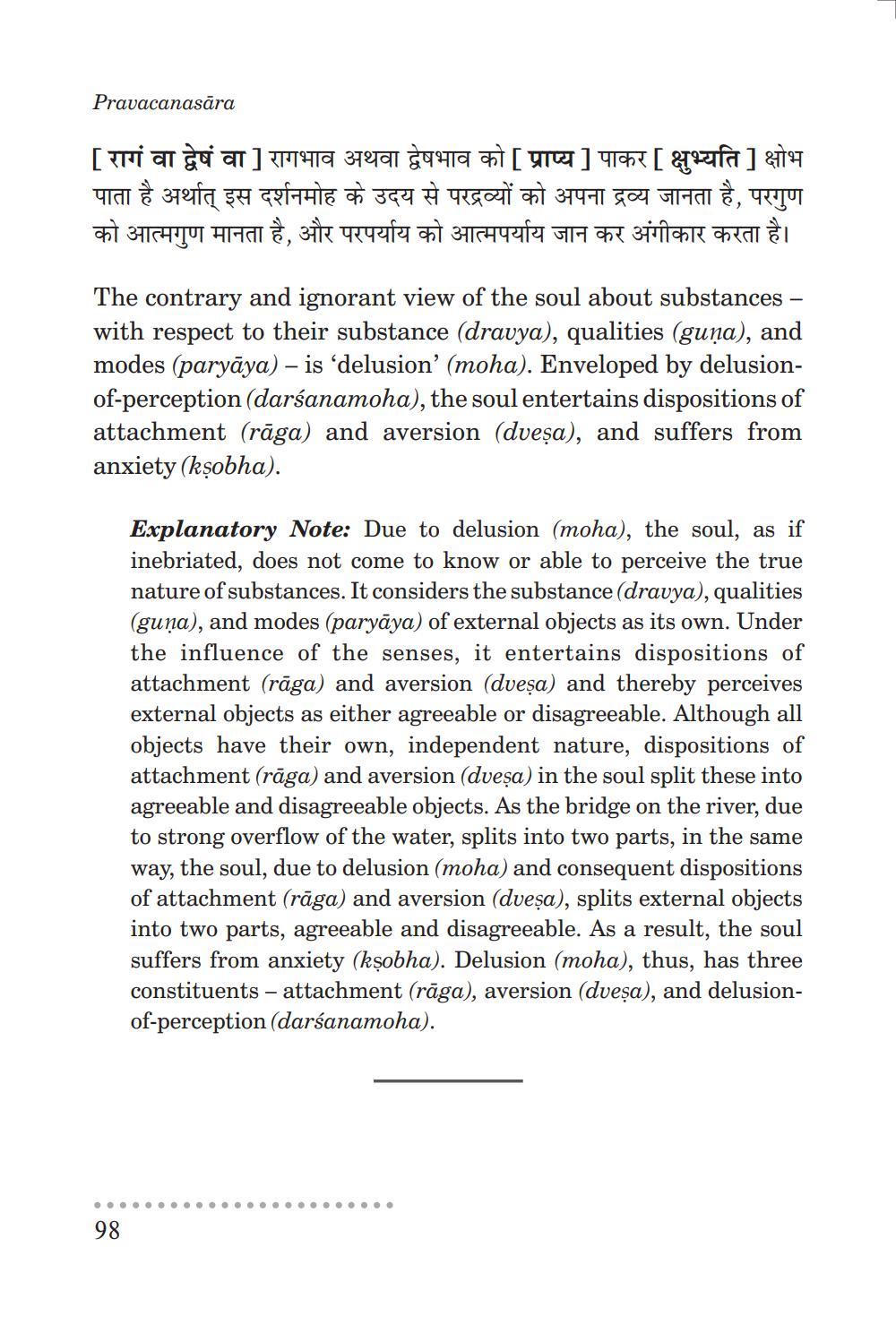________________
Pravacanasara
[ रागं वा द्वेषं वा ] रागभाव अथवा द्वेषभाव को [ प्राप्य ] पाकर [ क्षुभ्यति ] क्षोभ पाता है अर्थात् इस दर्शनमोह के उदय से परद्रव्यों को अपना द्रव्य जानता है, परगुण को आत्मगुण मानता है, और परपर्याय को आत्मपर्याय जान कर अंगीकार करता है।
The contrary and ignorant view of the soul about substances with respect to their substance (dravya), qualities (guna), and modes (paryaya) - is 'delusion' (moha). Enveloped by delusionof-perception (darśanamoha), the soul entertains dispositions of attachment (rāga) and aversion (dveṣa), and suffers from anxiety (kṣobha).
98
Explanatory Note: Due to delusion (moha), the soul, as if inebriated, does not come to know or able to perceive the true nature of substances. It considers the substance (dravya), qualities (guna), and modes (paryaya) of external objects as its own. Under the influence of the senses, it entertains dispositions of attachment (rāga) and aversion (dueṣa) and thereby perceives external objects as either agreeable or disagreeable. Although all objects have their own, independent nature, dispositions of attachment (rāga) and aversion (dueṣa) in the soul split these into agreeable and disagreeable objects. As the bridge on the river, due to strong overflow of the water, splits into two parts, in the same way, the soul, due to delusion (moha) and consequent dispositions of attachment (rāga) and aversion (dveṣa), splits external objects into two parts, agreeable and disagreeable. As a result, the soul suffers from anxiety (kṣobha). Delusion (moha), thus, has three constituents - attachment (raga), aversion (dveṣa), and delusionof-perception (darśanamoha).




